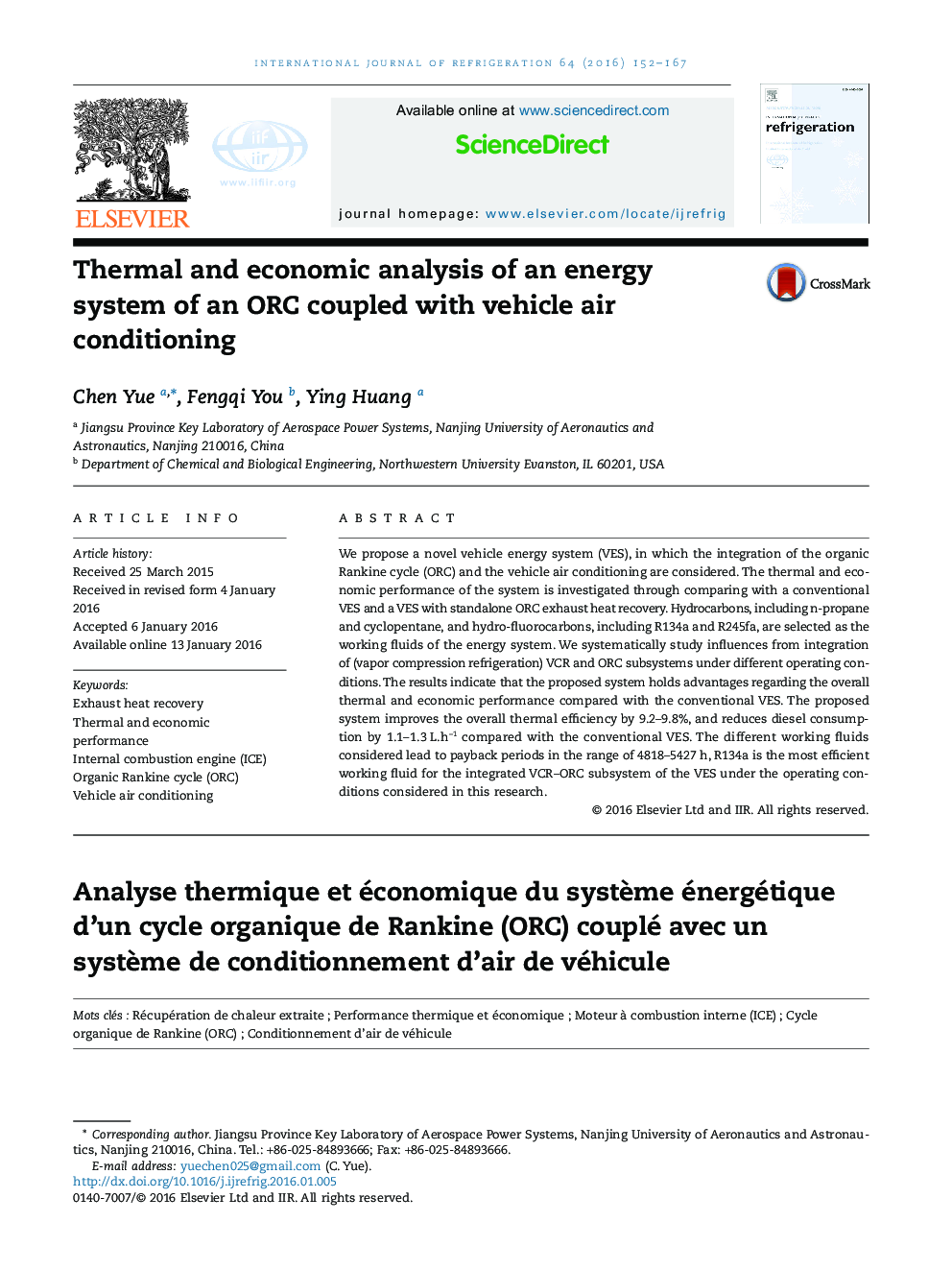| Article ID | Journal | Published Year | Pages | File Type |
|---|---|---|---|---|
| 786773 | International Journal of Refrigeration | 2016 | 16 Pages |
•A novel vehicle energy system with exhaust heat recovery is proposed.•Thermal and mass integration of the bottoming ORC and VRC subsystem.•Performance improvement of the VCR subsystem.•Decrease of the investment of the vehicle air conditioning is investigated.
We propose a novel vehicle energy system (VES), in which the integration of the organic Rankine cycle (ORC) and the vehicle air conditioning are considered. The thermal and economic performance of the system is investigated through comparing with a conventional VES and a VES with standalone ORC exhaust heat recovery. Hydrocarbons, including n-propane and cyclopentane, and hydro-fluorocarbons, including R134a and R245fa, are selected as the working fluids of the energy system. We systematically study influences from integration of (vapor compression refrigeration) VCR and ORC subsystems under different operating conditions. The results indicate that the proposed system holds advantages regarding the overall thermal and economic performance compared with the conventional VES. The proposed system improves the overall thermal efficiency by 9.2–9.8%, and reduces diesel consumption by 1.1–1.3 L.h−1 compared with the conventional VES. The different working fluids considered lead to payback periods in the range of 4818–5427 h, R134a is the most efficient working fluid for the integrated VCR–ORC subsystem of the VES under the operating conditions considered in this research.
